Are We Getting the Trump-Russia Story Right?
With scoops based on leaks and unnamed sources, news consumers should view all reports on the investigation with skepticism.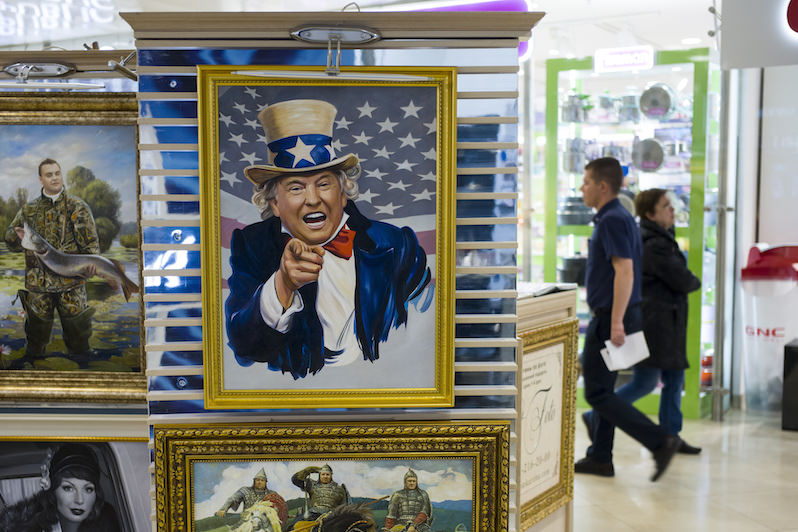 A caricature of President Donald Trump on sale in a shopping mall in Moscow. (Alexander Zemlianichenko / AP)
A caricature of President Donald Trump on sale in a shopping mall in Moscow. (Alexander Zemlianichenko / AP)
A caricature of President Donald Trump on sale in a shopping mall in Moscow. (Alexander Zemlianichenko / AP)
In the rush for daily scoops in the Donald Trump-Russia investigation, facts are hard to come by. Stories based on leaks and relying on unnamed sources can only leave the news consumer hopelessly confused.
The stories come in torrents, feeding the hunger of the 24/7-news cycle. From administration officials to those on the edge of the Trump circle, people find themselves tainted by stories linking them to Russian President Vladimir Putin, his top aides, his security police and his web of business contacts. To students of history and those of us with long memories, it’s reminiscent of the Red Scare days of post-World War II America when leaks about accused “commies” went from congressional investigators to reporters and then to newspapers and magazines.
These are the questions that should be asked by readers and viewers, no matter where they stand politically or philosophically:
Are today’s media outlets completely reliable?
Will some of their bombshells turn out to be misstated, overblown or just plain wrong?
Must we take the stories from leaks and anonymous sources by their teams of national security reporters at face value—or should we view them with the same skepticism that the reporters, themselves, are supposed to bring to their work?
I, for one, want better answers than we’ve been getting.
Our strange, secretive President Trump deserves investigation. He and his family seem entangled with Russian oligarchs tied up with Putin. The Russians could be squeezing the Trump clan, which could explain Trump’s friendliness, or at least lack of hostility, toward the Russians. It’s not a far leap to think of Trump negotiating with a tough creditor to Trump and his associates shifting the conversation to politics and policy with the Russians, welcoming their participation in the volatile American presidential election and promising to lift those sanctions.
Or perhaps the answer, as unimaginable as it seems, is that Trump is a foreign affairs visionary, as Nixon was with China, seeing his presidency as an opportunity to work with a former adversary with whom we share some interests. In that fanciful scenario, when the Trump-Russia investigation is completed, Trump and Putin will shake hands in their macho way while accepting the Nobel Peace Prize.
It may take years to get answers, even if special counsel Robert Mueller and Senate and House committees do a good job. Unfortunately, the years of investigation, with their inevitable leaks to journalists, especially from Congress, will take a heavy toll on democratic institutions while providing material for a steady stream of hot stories.
Robert Parry put it this way on Consortiumnews.com on May 7:
Congressional demands for personal and business information from several of Donald Trump’s campaign advisers demonstrate how the Russia-gate investigation continues to spill over into a new breed of McCarthyism infringing on civil liberties, including freedom of speech and freedom of association. … But the reality of Official Washington is that once momentum builds up around a “scandal,” someone has to get convicted of something – or all the Important People who have weighed in on the “affair” will look stupid. In Russia-gate, however, important principles about the right to dissent, the right to privacy and the right to associate freely are getting trampled.
The right to dissent was at the heart of an investigation I did for Truthdig last December on an organization called PropOrNot, short for Propaganda Or Not. PropOrNot had combed through many websites and identified more than 200 of them as being pro-Russian or unwitting tools of the Kremlin. Truthdig made the PropOrNot blacklist, as did many other sites. They ranged from progressive, like us, to one that’s alt-right. Its purpose was to identify pro-Kremlin “fake news.” I wondered how we got on the list. When I dug into the operation, I found PropOrNot had “sparse evidence indeed” that we were Kremlin collaborators. ProOrNot had an anti-Russian slant and was aimed at the dissent that makes our site and others so valuable to democracy.
The PropOrNot blacklist, whose compilers are anonymous, illustrates the danger of many stories with anonymous sources in the Trump-Russia investigation.
I’m not denying the worth of anonymous sources. I’ve used them throughout my career. Sometimes, that’s the only way of getting valuable information from an insider who doesn’t want her or his name used. But I’ve always viewed it as a last resort. My editors didn’t like the practice. Nor did I when I became an editor. Give me a name, a real person, any time.
Anonymous sources are at the heart of some of the biggest Trump-Russia stories. There has always been intense competition among the news media to be first with the news, competition to be even a few minutes ahead of a rival. The first story dominates the internet. It’s quoted by the rest of the media pack, giving the first one clicks, publicity and the acclaim of the digital world. The volume and speed of the news—coming from respected sources such as The New York Times and Washington Post—probably convince many news consumers to accept it at face value.
The chroniclers of the Trump-Russia story have been portrayed as heroes—21st century Woodward and Bernsteins—by cable television. Let The New York Times, The Washington Post, Reuters or the others pursuing the story get a scoop, and one of the authors will be hustled onto a cable network. Once humble reporters, they have been elevated to media celebrities, with network analyst positions, lecture appearances and maybe even a new job awaiting them.
I was taught the importance of being first in my 10 years as a reporter for The Associated Press. If you weren’t first, if the opposition beat you, you’d get bawled out. But like generations of AP reporters before and after me, I was also taught to be right, to make no mistakes. It’s better to be right than to be first. Try balancing that while reporting a big story, or a small one. It’s not easy. But we knew that to be wrong was a stain that could linger for years. It was lesson I have carried with me.
At the beginning of this column, I asked readers to consider whether some of the anonymously sourced stories, produced under heavy time pressure, were misleading or even wrong.
Rachel Maddow provided a good insight into the dangers of this process on her May 25 show. The MSNBC host was talking about an important story in the Russia affair. Numerous news outlets, including NBC, had reported that, days before he was fired, FBI Director James Comey asked for more resources for the investigation, including prosecutors and other personnel, to speed things up. His request, various news media implied, was a factor in Trump firing him. If Trump were trying to interfere with the investigation, this would be a figurative nail in the president’s coffin, possible evidence of obstruction of justice.
The Justice Department and the deputy attorney general, Rod Rosenstein, denied the story.
In her broadcast, Maddow admitted the story was wrong. She said that after reporting by the MSNBC staff she concluded, “What was widely believed to have happened, actually what was widely reported to have happened in this key point of time, what we know about it, I think, is wrong, and I think we can correct this record tonight.”
She said “what went on here was something akin to a game of ‘telephone’ on Capitol Hill.” That’s a game in which something is whispered into the ear of another person, who passes it on down the line. At the end, it usually is distorted.
Maddow said MSNBC journalists had learned that Comey had conferred with Chairman Richard Burr of the Senate Intelligence Committee and Sen. Mark Warner, the ranking member. Burr and Warner, she said, relayed conversation to fellow committee members.
“From there, word started to spread,” Maddow said, “and this resulted in multiple press reports that Comey had asked for more resources just days before he was fired.” Maddow, however, said that “if a request was made it was more like a nebulous thing than a direct appeal.”
Maddow concluded that if obstruction of justice is central to the Mueller investigation, “I think it is worth being very specific about what evidence we’ve got on obstruction of justice by the White House and by the president.”
Then in words that should be heeded by all journalists, she said, “Boy, is it important we get this story right.”
Your support matters…Independent journalism is under threat and overshadowed by heavily funded mainstream media.
You can help level the playing field. Become a member.
Your tax-deductible contribution keeps us digging beneath the headlines to give you thought-provoking, investigative reporting and analysis that unearths what's really happening- without compromise.
Give today to support our courageous, independent journalists.

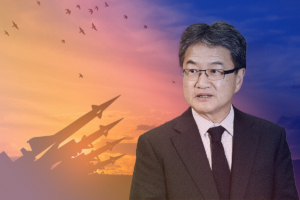
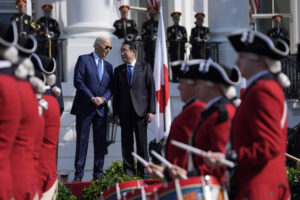
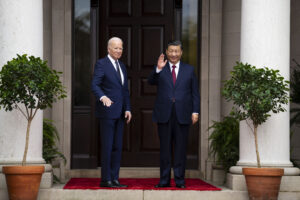
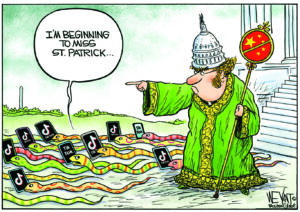
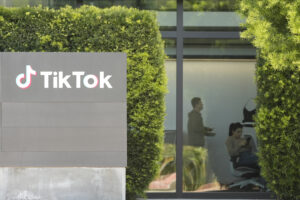
You need to be a supporter to comment.
There are currently no responses to this article.
Be the first to respond.